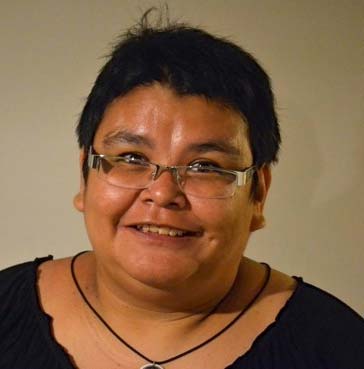
When it comes to identity, mainstream Canadians often know who they are and where they come from. They don't have to carry a card that says
"So and so(Insert name here) is an Indian within the meaning of the Indian Act."
Growing up, I didn't know about 'belonging' to a particular nation, or what it meant to be a 'status' Indian. I just knew from the people around me, that I was different. I was the one with brown skin, who stood out amongst the crowd of Caucasian people around me. There were whispers "Oh, Christine is Indian" when I passed people, and I felt self conscious about it, for reasons I couldn't really understand. It wasn't until I was 17 years old and living on my own for the first time that I learned about Bill C-31 and how this Bill made me eligible to apply to the government to become a status Indian.
Applying for 'status,' as my family doctor explained it to me at the time, meant that I would be given certain benefits. These benefits meant I didn't have to pay extra tax on items I bought, certain medications were covered instead of having to pay out of pocket from my social assistance at the time, part of my education would be covered by my band, if it was deemed I met their membership provisions etc ... etc ...
At the time, I didn't put a lot of extra thought into what it meant for me to carry this card around. At that age, though I knew I was Indian, I didn't understand the complex issues behind carrying a card that stated I was Indian. It was just another card for me to show as ID if need be. Oh the naiveté!
It wasn't until I became immersed in my culture, language and traditions later on, that I learned just exactly what carrying a card that stated who I was meant. It carried a weight unlike what I had ever experienced. It became legislated identity and in-your-face racism.
It meant exasperation from storeowners when I presented the card to them at the checkout, people leaving the line behind me when they saw me pull out my card, because customers don't want to wait an extra two minutes for the cashier to process my purchase. It had some people saying, "Why do you get special privilege and/or where can I get a card like that?" It also meant that I had to often shop around for certain health services like dental and eye care because not all health professionals honoured the 'status' card.
Dr. Pamela Palmater discusses in her book Beyond Blood: Rethinking Indigenous Identity the importance of identity, how it relates to Indigenous rights and culture and the challenges First Nations people face under the membership provisions of the Indian Act. She discusses not only the problem it has caused her own family but how it has impacted other Indigenous peoples of Canada.
Is it fair that Indigenous peoples of Canada face varying degrees of government control when it comes to their individual and collective identities? I don't think so. Why should Indigenous people be controlled and divided, when no other ethnic group in Canada is? Why should Indigenous peoples face membership provisions when it comes to 'belonging' with their own people?
The answers to these questions are complex. They lie within the Indian Act and Canada's policies towards First Nations peoples. The Indian Act and its provisions have made many groups and individuals exempt from legal recognition as Indians or band members based on grounds of gender, marital status, family, race, age, and blood quantum or descent.
Palmater believes that the membership provisions of the Indian Act are problematic because they "limi[t] what First Nations can do as peoples and as sovereign nations and plac[e] a legal burden on First Nations peoples as always having to prove how Indian they are, through blood quantum."

The Piker Press moderates all comments.
Click here for the commenting policy.